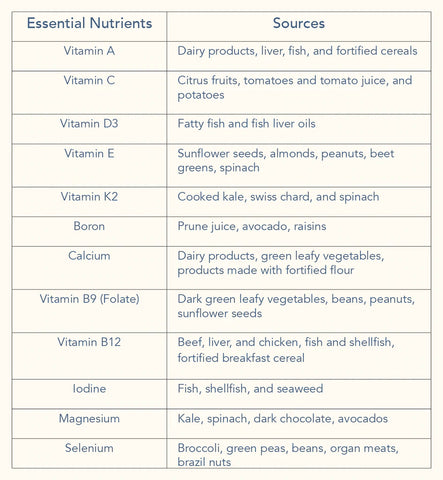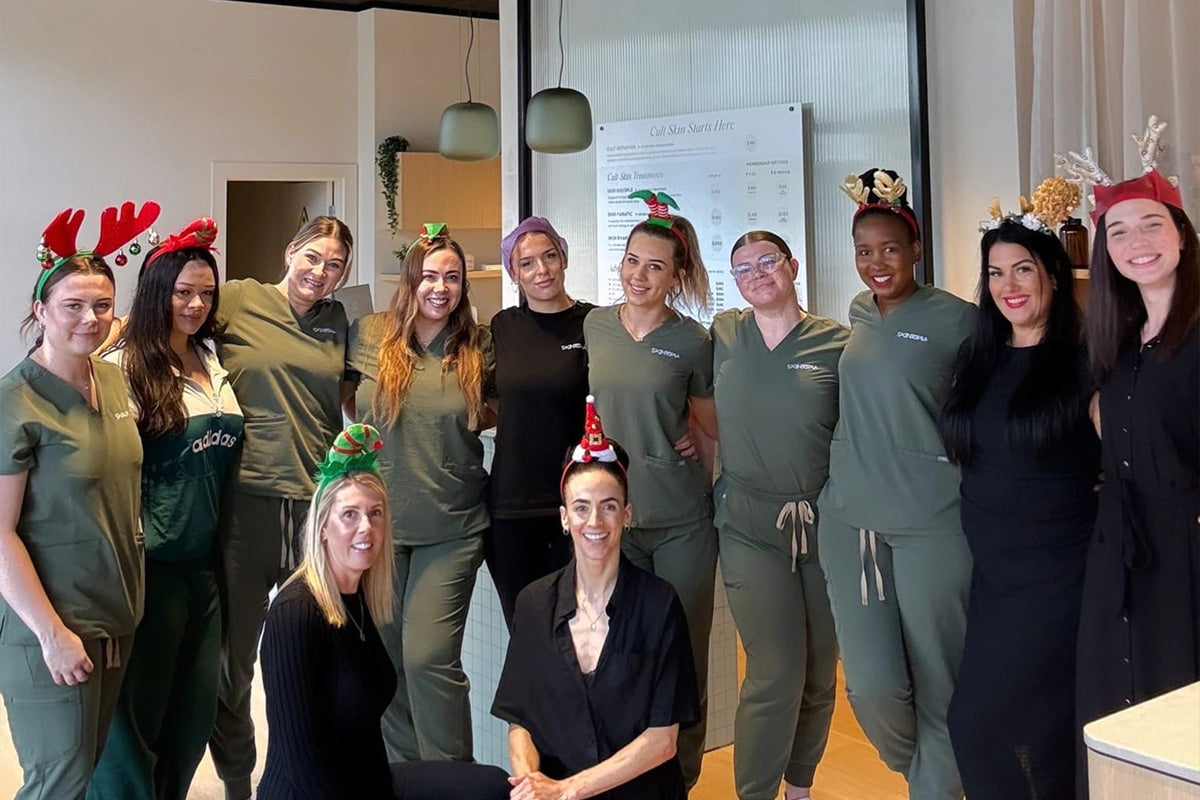Is This The Missing Ingredient To Your Wellness?

Our local wellness experts over at Be Pure share their guide to a nutrient-dense lifestyle.
When we talk about macronutrients, we mean carbs, protein, and fats. Micronutrients, however, are the vitamins and minerals that can be found in every food we eat and every drink we drink.
Because every major metabolic pathway in our body (for example breaking food down into fuel) depends on essential micronutrients to function, we want to be sure we have enough of the right ones so all cylinders are firing and we are setting ourselves up to feel as close to amazing as we can, every day.
Unfortunately, a lot of the food we eat doesn’t have enough of the nutrients we need and this is for a lot of reasons largely outside of our control but there’s a lot we can do to bridge that gap.
To understand why micronutrients are so important and why we need to pay attention to how much of them we need, we need to start at the beginning. Let’s get into it!
Why are we lacking in nutrients?
Let’s talk about soil
In an ideal world, we would get all of our nutrients from food alone but if it's not in the soil then it’s not in our food.
When we talk about food, we also need to think about how it's grown, because not all food is created equal. For plants, they’re grown in soil, so what kind of nutrients are they getting from that soil? The plants we eat get their nutrients from the roots and the roots get those nutrients from the soil they’re grown in.
“If nutrients aren’t in the soil then they can’t be in our food”
Studies on New Zealand soil have shown that it lacks some key nutrients like selenium, iodine, zinc, chromium and boron. These are essential for things like thyroid function, immunity, cell growth, and metabolism. You can see why we want these in our diet!
The impact of modern farming techniques on our diet
In the old days, when we ate from our own farms, we would eat seasonally, and food would grow at its natural pace. In the modern world, the demand for food is much greater, as is our desire to eat all foods, at any time of year. This also means it’s more expensive - if you’ve ever tried to buy cucumber in July you’ll know what we mean.
To keep up with this demand, farmers use alternative methods to grow food - ensuring that the plants are always exposed to (artificial) sunlight, carbon, and nitrogen. But, the price we pay for this convenience is that foods have fewer nutrients. Bummer, right?
“Produce has the greatest number of nutrients when it’s allowed to ripen naturally”
Fruits and vegetables start to lose their nutritional value from the moment they’re harvested. Often, however, it is picked early then frozen or chilled. In some countries, the apple you eat from the supermarket was actually picked up to a year before it reaches you! It’s a long way from when we used to eat directly from our own trees.
Eating seasonally can help to bridge the gap here and, of course, eating a lot of fruits and vegetables is great for our health, but because of these factors, it does mean we need to make up for some of that loss in order to get what we need.
Factoring in our lifestyle
Another factor to consider is that our modern-day lifestyles are increasing our need for high quality nutrients.
In times of stress our body uses more B vitamins, vitamin C, magnesium and zinc (to name just a few!).
The harder we push our bodies, the more stress we are under, if we’re pregnant, going through puberty, or experiencing menopause, our body needs more vitamins and minerals. This is because when our body experiences these internal changes, we need to fuel those changes with fuel in the form of nutrients. An example of this is adding in extra folate when pregnant or a multivitamin if we’re on the pill.
Why nutrients are so important
Vitamins and minerals are essential to health and are considered the building blocks of life. They’re responsible for energy, immunity, cell growth and repair, as well as reducing the risk of chronic diseases and short-term illness.
Because we need energy for everything we do, and because the only way we can get energy is from eating and drinking, we feel better when we’re eating the right nutrients.
Alas, that’s why we can’t live well off a bag of potato chips every day. Even if it technically has enough calories to keep us going, there’s very little in there that would help our bodies feel and function at their best.
Eating foods with a broad range of nutrients makes our bodies and minds happy from the inside out.
What are the key nutrients we need?
Food is our primary source of essential vitamins and minerals. The following nutrients are those we need every day as well and we have grouped them with the foods you can find them in so next time you’re at the supermarket we will see everything that greets us as soon as we walk in the door is great for us!

What about probiotics?
While not technically a nutrient, probiotics are just as important for us, particularly our gut. All of our health and most of our immunity starts in the gut: everything from skin to weight to mood. Our gut microbiome is the bacteria that lives in our digestive tract and feeds off everything we eat and drink. When we eat well, it feeds the good bacteria and good bacteria kills off the bad. The ‘bad’ bacteria loves food like sugar and it actually makes us crave more sugar because it loves it so much.
The flipside of that is when we eat foods that are good for our gut - including fermented foods like kimchi, kombucha as well as kefir, yoghurt, and sauerkraut - we are supporting all of that healthy bacteria which in turn helps us produce serotonin, crave healthier foods and have more regular bowel movements. It’s also why having a daily probiotic like BePure two is so helpful to us as we can be sure that we’re getting that good bacteria every day.
The importance of Omega-3
BePure Three - Omega 3 Fish Oil 30 day – Skintopia is an amazing all-rounder. The active ingredients in a good quality fish oil (omega-3) are DHA and EPA which are each hugely beneficial for a lot of areas of health including: inflammation, skin, heart health, hormone balance, joints, mental wellness and everyday wellbeing. Fish oil is considered an essential fatty acid because the body needs it but can’t produce or store it - just like essential vitamins like vitamin C.
So, what can we do next?
We know that a healthy diet is important but we also know there’s room for improvement given modern farming, modern stressors, and so let’s look at how to add in extra nutritional support to our diet.
The Everyday Wellness pack is designed to support all areas of health, giving us what we need for baseline health in one easy pack. It includes a multivitamin, a probiotic, and a fish oil and taken daily can ensure we are getting the nourishing nutrients we need, hassle-free.
Find here at Everyday Wellness Pack - 30 Day – Skintopia 
Article via our friends at BePure | Scientific Wellness – BePure Wellness






